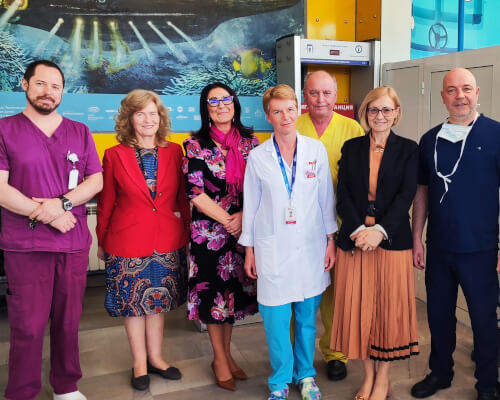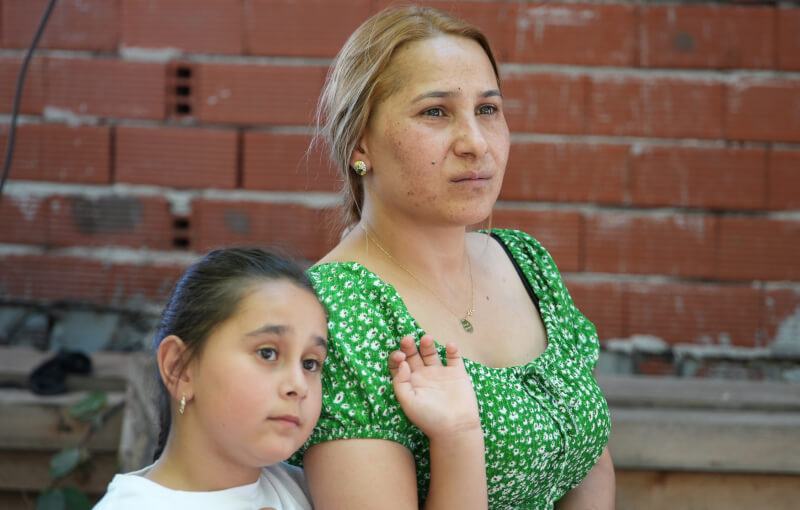
A letter from the utility company is rarely cause for joy. But for many in Bulgaria, seeing their name and address printed on an official envelope is a dream come true. The letter might contain a balance due or a rate increase notification, but that wouldn’t diminish its significance — a letter is tangible proof that the recipient finally has a shot at a normal life.
While no official data exists about how many people in Bulgaria live without an address in informal settlements, normal life is likely out of reach for hundreds of thousands of Bulgarian citizens.
What that means is that a considerable number of Bulgarians live without access to running water, sewage treatment, or electricity, explains Maria Metodieva, of the Trust for Social Achievement, an organization working with vulnerable communities nationwide. Informal settlements have no streets either and therefore no public transportation linking them to anywhere else. This makes access to employment difficult and bars local children from attending kindergarten or school.
Moreover, residents of informal settlements live in constant fear that the bulldozers will come and their houses will be razed to the ground. With more than 3,000 unregulated homes demolished between 2017 and 2020 alone, these concerns are not unfounded, Ms. Metodieva says.
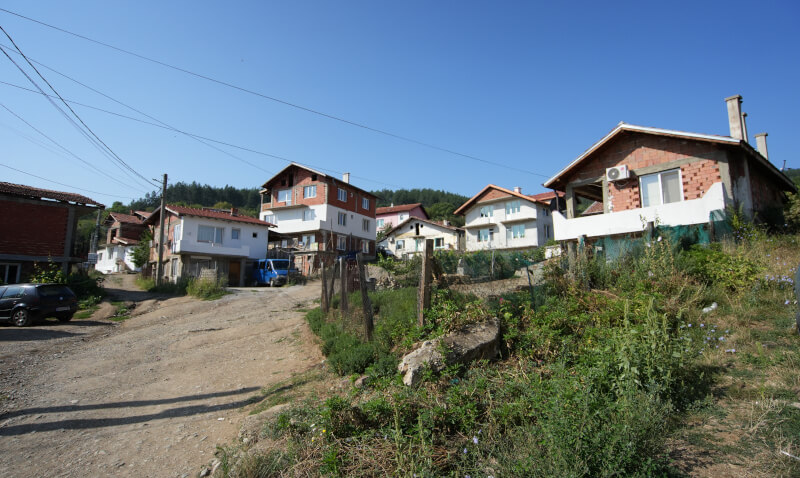
“It’s just normal to want to have a legal house, to pay for it, to pay for water, and to not have to worry that you don’t have water or electricity,” says Gergana from Lukovitsa, an informal settlement in Peshtera. She and her husband work abroad but invest all their savings in making a home here. “I love Bulgaria, this is home,” she says.
The Trust for Social Achievement has been helping people like Gergana formalize their houses since 2017. The first step toward that goal is zoning informal settlements; this puts homes on the map and gives them an official address. The Trust worked in partnership with three municipalities to zone 282,000 square meters (over 3 million square feet, or the size of 68 soccer fields) in Kyustendil with 1,000 existing homes; 110,000 square meters (nearly 1.2 million square feet) in Dupnitsa with 156 existing homes; and 26,000 square meters (280,000 square feet) in Peshtera with 65 land plots zoned for single-family homes.
In 2024, the Trust also completed the construction of a sewage and water system in the Lukovitsa neighborhood in Peshtera.
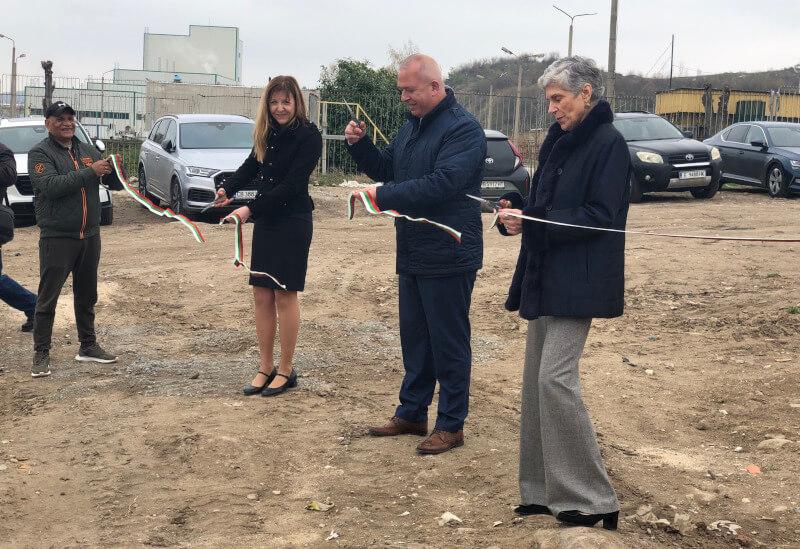
Twelve families have already purchased the land plot under their home from the municipality in Dupnitsa, and 43 more are in the pipeline. Thirty-two families have purchased their land plot from the Community Investment Fund in Peshtera.
So far, 1,221 families have improved housing security because of this work.
One of those families is Sergey and Adelina’s, from Dupnitsa’s Kavaklia neighborhood.
“We tried so many times to buy this land. But it wasn’t possible until now. When we found out that the neighborhood had been zoned and the municipality was selling plots, we decided to buy it. Now the land is ours. We’re planning to make a fence to mark our property off from our neighbors’, and we’re looking forward to living a normal life. We have a two-and-a-half-year-old child, and he’ll have a normal place to play.” Sergey and Adelina are excited about the prospect.
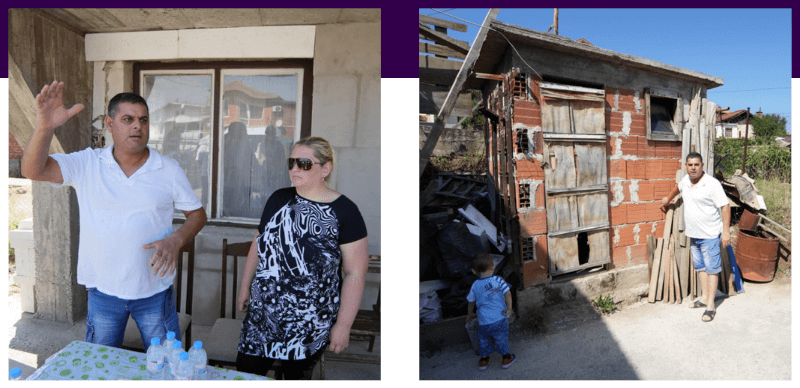
“Legalizing informal assets provides an incentive for individuals to comply with regulations and pay taxes,” Ms. Metodieva says. “When assets are brought into the formal system, owners are more likely to comply with legal requirements, contributing to government revenues and the overall economy.”
Moreover, regulating informal assets can help reduce poverty by enabling individuals and families to build wealth through property ownership and entrepreneurship. It can create pathways for social mobility and economic advancement, particularly for the next generation.
Home ownership provides stability, allowing families to establish roots in a community. “A growing body of research suggests that stable housing may also increase a child’s opportunities for educational success as the reduction of chronic, toxic stress is instrumental in a child’s well-being and development,” Ms. Metodieva says.
It is their children’s future that Rosen and Nikolina from Dupnitsa’s Kavaklia settlement are investing in.
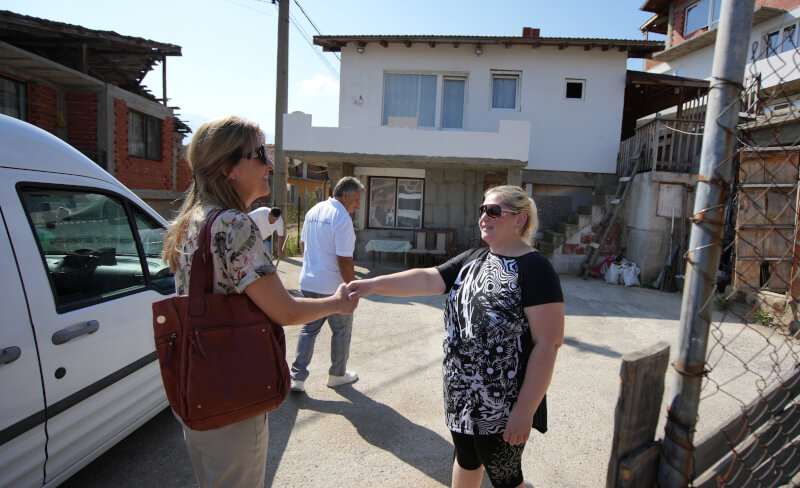
“I work in construction, and we are doing well, but I don’t have a contract. My mother is a cleaner and was able to take out credit for us,” Rosen says. “We have seen the demolitions of other neighborhoods on television. It’s better to buy the land and to formalize the house. This way we can feel at ease, and we can leave our house to our children.”
Providing for posterity — this is a sentiment familiar to every parent.
We may differ in other ways, but our dreams and aspirations are remarkably similar, no matter where we live, aren’t they?
The Trust for Social Achievement relies on donations to help families like Rosen and Nikolina’s, Gergana’s, Lazar’s, and Sergey and Adelina’s escape poverty and raise healthy, capable children. Help them reach more families by becoming a supporter here: https://socialachievement.org/en/get-involved/donate/
The America for Bulgaria Foundation has been a proud supporter of the Trust’s work since 2012.

